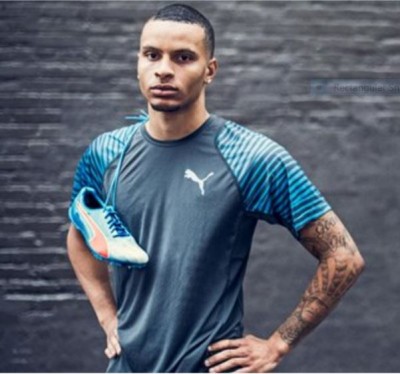How Much Do Pro Track & Field Athletes Make? We Polled 5 Agents to Find Out; Make Your Guesses Before We Reveal the Answers Next Week
By LetsRun.com
August 22, 2018
One of the biggest differences between professional track & field and the major professional sports centers around money. You don’t need to be a genius to figure out that there’s more money in professional football (both American football and soccer) than professional track & field. But how much more, exactly?
The website Spotrac.com lists the salary of every player on the roster of every team in the NFL, MLB, NBA, and NHL. If you want to know how much NBA MVP James Harden will make during the 2018-19 season, you simply click on the Houston Rockets team page, and there it is, down to the dollar: $30,421,854.
There is no track & field tab on Spotrac.com, which makes sense — not only are sports such as the NFL and NBA more popular than track & field, but teams also operate within a salary cap, which means salary information is that much more important. But even if there was a track & field tab, there would not be much to put there. Think about it: how many times have you ever heard of a track & field brand or athlete releasing contract details?
When Andre De Grasse signed with Puma in 2015, the Toronto Star reported that his contract was worth $11.25 million. But even those details were vague; the article mentioned $4 million in guaranteed money, but made no mention of possible reductions and said that with bonuses, the deal could be worth as much as $30 million. It also neglected to include one key detail: the contract’s length. Perhaps the most telling line of the story came from De Grasse, who admitted he only decided to leave his collegiate team, USC, and turn pro early once he learned how much he would make as a professional.
“Before I really didn’t know the numbers, and thought maybe it was worth staying at USC and competing NCAA,” De Grasse told The Star. “But now that I realized how much I could make, and I’ve already accomplished so much in the NCAA, I felt like it was really time to go.”
That Toronto Star article was notable not for its lack of details, but for its inclusion of them; it was the rare occasion when any dollar amount was attached to the announcement of a professional track & field contract. In 2013, CNBC reported that Usain Bolt‘s Puma contract paid him $10 million per year, but in general, details about pro contracts are few and far between. Sometimes it’s hard to know whether an athlete even has a contract. Earlier this year, we were working on a story about Matthew Centrowitz and asked his agent Ricky Simms to confirm that Centrowitz’s Nike contract expired at the end of 2017; Simms declined to answer, saying that he generally does not disclose those details publicly.
One of the biggest insights into a pro contract came in 2016, when LetsRun.com revealed New Balance’s contract offer to 800-meter runner Boris Berian, a contract that never would have been made public had Nike not sued Berian to retain his sponsorship rights. One of the biggest lessons we learned from that story is that even pro athletes have no idea what other pros are making. Kara Goucher estimated that Berian’s contract was worth $35,000 to $40,000 a year. Nick Symmonds — who runs the same event as Berian — estimated $75,000. The contract’s actual base annual value? $125,000.
More: LRC Pro Runners React To Boris Berian’s Contract – Most Greatly Underestimated How Much He Was Offered
One of our primary goals at LetsRun.com is to spread knowledge of the sport of track & field. And in the case of athlete contracts, we feel is important for both the athletes and fans to have a clearer picture of the financial realities of the sport. So we went to the people who actually negotiate these deals: the agents. Earlier this month, LetsRun.com reached out to a number of agents and asked them to complete a survey estimating the 2018 base contracts of 39 professional track & field athletes as well as the appearance fees for the professional fields at the 2018 Boston Marathon. While several declined our request, we found five willing participants and will reveal the data from the survey next week.
But before we do that, we wanted to give you, our readers, a chance to make your own guesses. Below is the same survey we sent to the agents earlier this month. Make your best guess for each athlete, and when we release the agent data next week, we’ll compare it to the guesses of LRC nation.
Unless otherwise noted, for each athlete listed, please estimate their 2018 base shoe contract in US dollars. For a few athletes, we make it clear we want you to make a guess for a specific year like Mary Cain‘s peak earning year as compared to now. At the end of the form, we ask you to estimate the appearance fee athletes received (if any) for the 2018 Boston Marathon so please respond accordingly. If you have no idea, you may leave answers blank.
IMPORTANT NOTE: When logging your responses, please input numbers only — no $ signs, no “million,” no “thousand.” So if you think Galen Rupp makes $5 million a year in base compensation from his Nike deal, you would record your response as 5,000,000 or 5000000. If you think he makes 75 thousand per year, you would type 75,000 or 75000 into the form.
Final Note: If you are a professional agent and want to do the survey for the article (you will remain anonymous), please email Jonathan Gault.



